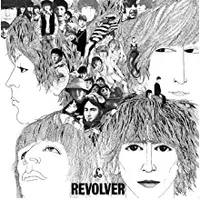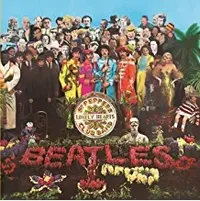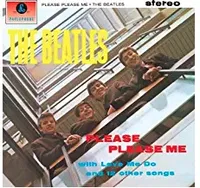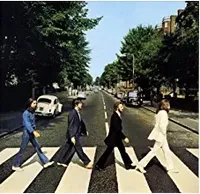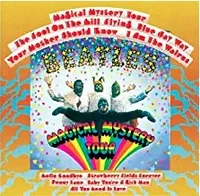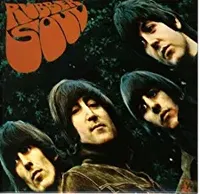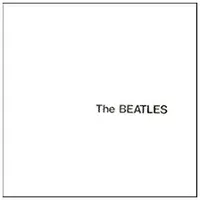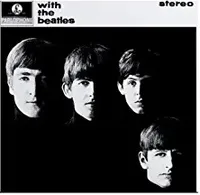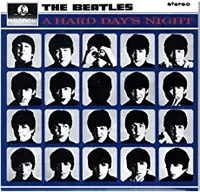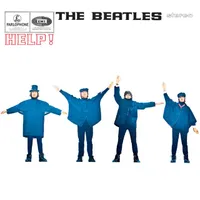The Beatles' albums you should listen to... and one to avoid
The Beatles have been gone for more than half a century, but their shadow still looms large over rock music and rock musicians - and these are their best albums
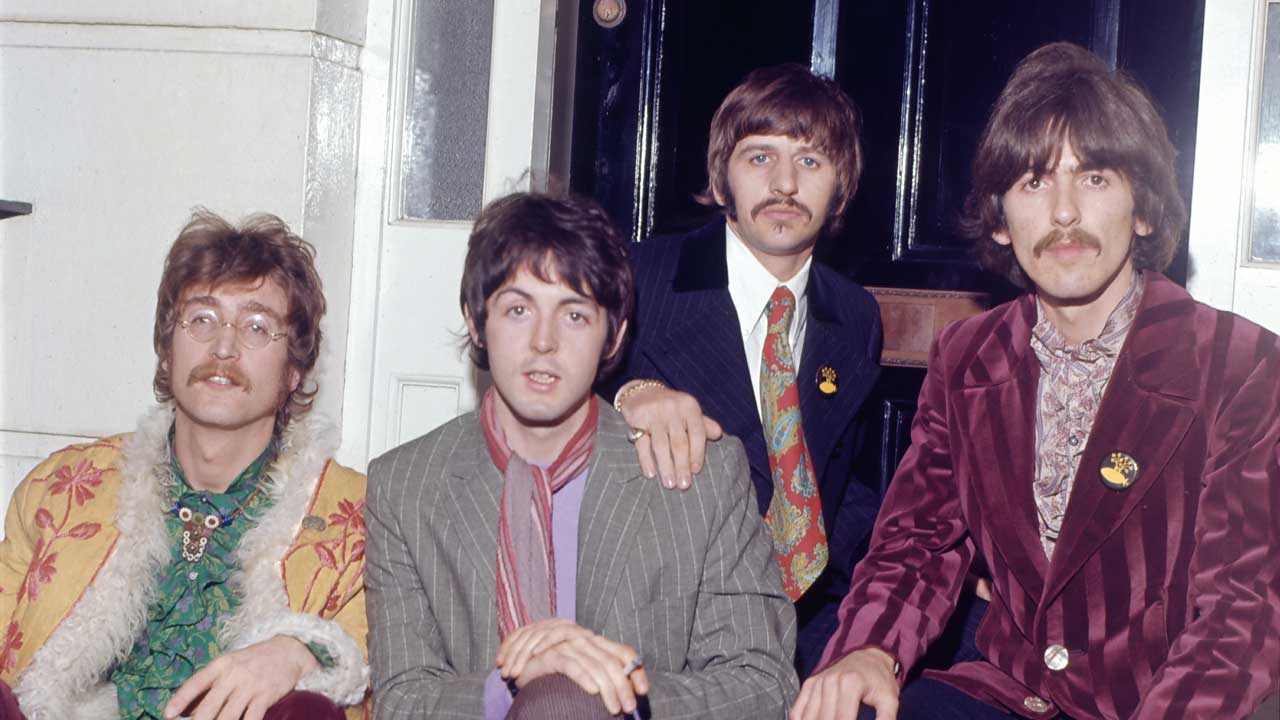
Select the newsletters you’d like to receive. Then, add your email to sign up.
You are now subscribed
Your newsletter sign-up was successful
Want to add more newsletters?

Every Friday
Louder
Louder’s weekly newsletter is jam-packed with the team’s personal highlights from the last seven days, including features, breaking news, reviews and tons of juicy exclusives from the world of alternative music.

Every Friday
Classic Rock
The Classic Rock newsletter is an essential read for the discerning rock fan. Every week we bring you the news, reviews and the very best features and interviews from our extensive archive. Written by rock fans for rock fans.

Every Friday
Metal Hammer
For the last four decades Metal Hammer has been the world’s greatest metal magazine. Created by metalheads for metalheads, ‘Hammer takes you behind the scenes, closer to the action, and nearer to the bands that you love the most.

Every Friday
Prog
The Prog newsletter brings you the very best of Prog Magazine and our website, every Friday. We'll deliver you the very latest news from the Prog universe, informative features and archive material from Prog’s impressive vault.
The legacy of The Beatles transcends generations and strides unfettered across cultural divides. The mere mention of the name, and the individual members, dead or alive, opens doors and builds bridges around the world (as Paul McCartney is fond of saying, “nobody is Beatle-proof”). But neither are they perfect.
The issues taken with The Beatles are many, varied and not always of their own making. There’s the crushing ubiquity, of course, coupled with the patronising finality with which Beatles fans declare them the ‘best’ or, worse still, ‘most important’ group in history.
There are the unbearably twee moments in the back catalogue (Yellow Submarine, say, or Octopus's Garden, or Rocky Raccoon). The memories of McCartney mugging through Yesterday. The tailored suits. The whimsical films. The screaming.
But step back from the context. Clear your head of the fog of hyperbole. Allow yourself to listen to The Beatles as a band rather than as a cultural phenomenon, and you’ll remember just how much attitude, wit, sweat, eloquence, melody and – perhaps above all – sheer diversity they packed into their short career.
It’s reasonable to say you hate some Beatles songs; albums, even. But to claim there’s nothing in their staggeringly eclectic catalogue that moves you is tantamount to admitting you’re bored with music itself.
Of course, the context always catches up with you in the end. At a time when most popular performers were still mouthing the words of the Brill Building writers, The Beatles (along with Bob Dylan) led the way for any band who ever seized the reins of their art, strived to address the physical, spiritual and political world around them, and forced themselves to evolve in the face of commercial pressure to stay the same. The Beatles did all that, in just eight years, and left behind a pile of tunes that simply towers over other artists.
Here, then, are the best albums by The Beatles, and therefore some of the best albums ever to fly the flag of rock’n’roll.

Selling less than Rubber Soul and losing the No.1 spot in less than two months, Revolver might have implied a downward trend were it not for the career-best songs.
Fearlessly experimental on Lennon’s LSD-tinged I’m Only Sleeping, and serving up McCartney gold with Eleanor Rigby and Here, There And Everywhere, this seventh record also showcases Harrison, who was never more barbed than on the HMRC-poking Taxman and whose scuffed-up guitar tone brought muscle to And Your Bird Can Sing.
Forever the rock fraternity’s favourite (and the blueprint for Noel Gallagher’s career), in any rundown of Beatles albums, Revolver has to be number one with a bullet.
Sgt. Pepper’s Lonely Hearts Club Band (Parlophone, 1967)
With Lennon’s creative wings clipped by LSD and Harrison testing listener endurance with Within You Without You, it was chiefly down to McCartney to shoulder The Beatles’ defining eighth album. Fortunately, the bassist was on the form of his life, coining the title and concept (such as it is) and turning in a brace of classics in Lovely Rita and the title track(s).
Still breathtaking in its invention, Sgt. Pepper's Lonely Hearts Club Band catches the kaleidoscope influences of its authors and when the multi-tracked piano brings A Day In The Life clanging to a close, nobody would argue that they enjoyed the show.
Please Please Me (Parlophone, 1963)
With the Parlophone label cagey about their new signing’s return on investment, The Beatles were allotted £400 to spank out their debut during a ten-hour marathon at Abbey Road, while Lennon nursed a nasty cold.
Revisit Please Please Me today and the pressure is still palpable, but the album is all the better for it, with I Saw Her Standing There tearing out of the blocks and the joyous title track announcing that rock ‘n’ roll was on these shores to stay.
Already, Lennon and McCartney were rubbing up sparks together (their eight co-writes was an unprecedented creative burst at the time), and by the time they wrap up a definitive take on The Isley Brothers’ Twist And Shout, it was all over bar the shouting.
Abbey Road (Apple/Parlophone, 1969)
After the fractious Let It Be sessions of January 1969, McCartney urged his bandmates back into the studio to make an album “like the old days, like we used to”.
Deep down, everyone involved knew that Abbey Road was the last stand, which explains the nothing-to-lose attitude that pervades the material. Side One of the original vinyl holds most of the big-hitting moments, from the swampy judder of Come Together to Harrison’s untouchable Something.
And while Here Comes The Sun is a no-brainer, cherrypicking the medley from Side Two was just as rewarding, with Golden Slumbers and Carry That Weight standing amongst their most lump-in-throat moments.
Magical Mystery Tour (Parlophone, 1967)
The film was mauled, for good reason. But 1967’s Magical Mystery Tour compilation – cut and pasted from the soundtrack and that year’s non-album cuts – offers a stream of gold that is arguably unequalled anywhere else in their catalogue.
‘The Magical Mystery Tour is coming to take you away,’ roars McCartney in the everything-and-the-kitchen-sink title track – and what follows is just escapist as he promised, hitting the psych-rock of I Am The Walrus, the upbeat but strangely wistful chorus of Hello Goodbye, Macca’s buoyant Penny Lane and a brace of stone-cold Lennon masterpieces in Strawberry Fields Forever and All You Need Is Love.
Rubber Soul (Parlophone, 1965)
Seemingly out of gas on the aptly titled Help!, and eyeing the increasingly impressive work of Dylan, Rubber Soul found The Beatles daring to broach deeper topics while broadening their musical horizons beyond their old bread-and-butter ‘work songs’.
By this point, each personality was leaving its own thumbprint on the music, whether that was Lennon and McCartney laying themselves bare on Nowhere Man and You Won’t See Me, Harrison debuting his sitar fixation (for better or worse) on Norwegian Wood, and Ringo earning his first co-writer credit for What Goes On. It’s the linking point between their roots and their more-interesting late work.
The Beatles (The White Album) (Apple/Parlophone, 1968)
The cracks were becoming fault lines as The Beatles chased down their hefty post-Pepper double album, with the band members scattering throughout Abbey Road to work in isolation, only convening when there was a warm gun to their heads. It follows that the White Album has a lack of cohesion, while there’s a strong case it would have been twice the record at half the length (begone Rocky Raccoon and Revolution 9).
Even so, the record wins back brownie points with the tearing Chuck Berry-meets-Beach Boys Back In The U.S.S.R., McCartney’s delicate I Will and the Clapton-bolstered While My Guitar Gently Weeps. With better quality control, it might have been their finest hour.
With The Beatles (Parlophone, 1963)
In ’63, bands didn’t yet have the luxury of being able to navel-gaze over their ‘difficult second album’, and With The Beatles was smashed out in a few snatched sessions between live dates.
By now, Beatlemania was part of the lexicon, and this follow-up captured the dizzy excitement of the upswing, while offering quieter gems like All My Loving and It Won’t Be Long, and showcasing the band’s growing chops. The lack of a flagship single has sometimes made With The Beatles feel like the closest thing to their cult album – but being underplayed means it feels fresher than most.
A Hard Day’s Night (Parlophone, 1964)
The Hard Day’s Night songs had married perfectly to Richard Lester’s film, and this companion album was no less effective. While Lennon and McCartney were no longer the ‘eyeball-to-eyeball’ writing partnership of old times, this was the first Beatles album with no covers (or, indeed, Ringo vocals), and groans under the weight of the duo’s erupting genius.
From the arresting twelve-string clang that opens the title track, through Lennon’s deeply felt If I Fell, to the straight-up-rollicking Can’t Buy Me Love, this record was a document of a group headed for the stars.
...and one to avoid
You can trust Louder
Strictly speaking, there’s no such thing as a bad Beatles album, but Help! is arguably their least good. Apart from the title track and Ticket To Ride, this fifth collection was a circling of wagons from a band that had previously refused to stand still, with too many tracks – Tell Me What You See, let’s say, or Another Girl – that offered little more than facsimiles of what had gone before.
If Help! has a saving grace it’s that it made The Beatles start pushing themselves again, with the band drawing a line under the record and emerging later that year with a new sound and ethos. From this point on, things were about to get much more interesting.
Sign up below to get the latest from Classic Rock, plus exclusive special offers, direct to your inbox!
Henry Yates has been a freelance journalist since 2002 and written about music for titles including The Guardian, The Telegraph, NME, Classic Rock, Guitarist, Total Guitar and Metal Hammer. He is the author of Walter Trout's official biography, Rescued From Reality, a music pundit on Times Radio and BBC TV, and an interviewer who has spoken to Brian May, Jimmy Page, Ozzy Osbourne, Ronnie Wood, Dave Grohl, Marilyn Manson, Kiefer Sutherland and many more.
